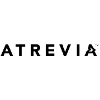Ecuador Job Openings

United Nations
ASSOCIATE DEVELOPMENT COORDINATION OFFICER, DATA MANAGEMENT AND RESULTS MONITORING & REPORTING
Quito
November 29, 2024
Org. Setting and Reporting
The UN Secretary-General launched on 1 January 2019 a bold and new global reform which repositioned the UN Development System to deliver more effectively and efficiently with the achievement of the 2030 Agenda and the Sustainable Development Goals (SDGs). As part of this reform, UN Resident Coordinator Offices (UN RCO), under the leadership of an empowered and independent UN Resident Coordinator - the highest-ranking official of the UN Development System and Representative of the UN Secretary-General at country level - support countries in the achievement of their development priorities and the attainment of the SDGs. This position is located within the Office of the United Nations Resident Coordinator (Head RCO) in Ecuador and reports to the Development Coordination Officer, Strategic Planning and RCO Team Leader.
Responsibilities
Within delegated authority the incumbent will perform the following duties: 1. PROVIDES SUBSTANTIVE SUPPORT FOR THE DEVELOPMENT AND IMPLEMENTATION OF THE UNCT DATA AND RESEARCH STRATEGIES: • Assists in the design and implementation of the UNCT’s data and research strategy, in alignment with the Country Common Analysis (CCA) and UN Sustainable Development Cooperation Framework (UNDCF); • Undertakes empirical analysis, data mining and visualization, as assigned, to assist the Resident Coordinator (RC) and UNCT, including results groups, in developing reports and working papers on sustainable development topics; • Compiles and analyses information on the latest developments of the use of new types of data sources and tools (e.g. big data) for sustainable development; • Provides substantive and analytical support to RC/UNCT in preparing and positioning the UN to accelerate the achievement of the Sustainable Development Goals (SDGs) in the country, including the drafting of reports, as well as analytical and position papers; • Contributes to UNCT research and development of data and research tools and methodologies at the country level; • Keeps abreast of emerging development issues to optimize UNCT’s analytical capacity to respond to national priorities; • Contributes substantively to the development and implementation of peer review and quality assurance mechanisms for UNCT’s research products; • Administers UNINFO planning, monitoring and reporting system and contributes to the development of the One UN Country Results Report. 2. ASSISTS IN THE DEVELOPMENT AND EXPANSION OF STRATEGIC RESEARCH AND DATA PARTNERSHIPS, INCLUDING WITH UN ENTITIES AT REGIONAL AND HQ LEVEL, GOVERNMENT COUNTERPARTS, RESEARCH INSTITUTES, LEADING GLOBAL THINKERS ON DEVELOPMENT, AND CIVIL SOCIETY, AMONG OTHERS: • Supports the UN’s work with national data and statistical systems, facilitating engagement with national entities and data systems; • Communicates and coordinates with existing partners and helps form new partnerships with UN agencies, academia, the private sector, and governmental agencies to further the use of data science for development. • Communicates and coordinates with internal and external partners on data collection and project/research implementation; • Supports the convening of key thinkers on sustainable development and 2030 Agenda to provide inputs on, advise and steer the UNCT’s research and data agenda. • Assists in strengthening the UNCT’s partnerships with research institutions and similar entities across the UN system though concrete collaboration on areas of the 2030 agenda. 3. UNDERTAKES MONITORING AND REPORTING OF UNCT RESULTS UNDER THE UN DEVELOPMENT ASSISTANCE FRAMEWORK (UNDAF): • Supports inter-agency efforts on results and progress monitoring and reporting on the UNDAF and Joint Programmes, particularly through UNINFO; • Assists in preparing the UNDAF monitoring and evaluation (M&E) framework and reporting results at country, regional and global levels. • Contributes to independent evaluations of UNDAFs as a key element of the UNDAF cycle, and other interagency work related to monitoring, evaluation and reporting; • Serves as country focal point for country-level, regional and global M&E initiatives and networks. 4. SUPPORTS KNOWLEDGE MANAGEMENT AND CAPACITY DEVELOPMENT RELATED TO DATA AND MONITORING: • Assists in the sharing of best practices within the UNCT and with UNCTs in the (sub)region and globally, based on a solid understanding of the incentives that people need to utilize knowledge. • Advocates for knowledge sharing, inspiring others within the RCO and UNCT to contribute their expertise through internal and external platforms and tools, working closely with colleagues at the regional level to ensure usable knowledge is shared between and applied by UNCTs. • Assists in the identification of good practices and lessons learned at the different levels of the UN System (national, regional and global) and share findings with HQ, Regional and country colleagues so that best practices benefit UN’s work; • Contributes to the UNCT’s exchange of best practice, trends, knowledge and lessons learned with external partners. • Provides substantive support for assigned thematic activities and knowledge-sharing forums and encourages others to participate. • Contributes to knowledge sharing (including through training and peer exchange) amongst UN staff on issues related to UN strategic planning frameworks, methodologies and tools; • Draws upon other UN experiences, lessons learned and knowledge networking to provide contributions to strategic planning processes. • Contributes to the collection and analysis of data and identification of trends or patterns and provides draft insights through graphs, charts, tables and reports using data visualization methods for data-driven planning, decision-making, presentation and reporting. • Documents requirements and background information used for data analysis. • Performs other relevant duties as assigned.
Competencies
• PROFESSIONALISM: Knowledge and understanding of sustainable development theories, concepts and approaches. Ability to identify and develop sources for data collection. Ability to undertake research, analyze data, make recommendations and write draft reports on sustainable development issues. The ability to analyze and interpret data in support of decision-making and convey resulting information to management. Shows pride in work and in achievements; demonstrates professional competence and mastery of subject matter; is conscientious and efficient in meeting commitments, observing deadlines and achieving results; is motivated by professional rather than personal concerns; shows persistence when faced with difficult problems or challenges; remains calm in stressful situations. Takes responsibility for incorporating gender perspectives and ensuring the equal participation of women and men in all areas of work. • PLANNING AND ORGANIZING: Develops clear goals that are consistent with agreed strategies; identifies priority activities and assignments; adjusts priorities as required; allocates appropriate amount of time and resources for completing work; foresees risks and allows for contingencies when planning; monitors and adjusts plans and actions as necessary; uses time efficiently. • COMMITMENT TO CONTINUOUS LEARNING: Keeps abreast of new developments in own occupation/profession; actively seeks to develop oneself professionally and personally; contributes to the learning of colleagues and subordinates; shows willingness to learn from others; seeks feedback to learn and improve. • TECHNOLOGICAL AWARENESS: Keeps abreast of available technology; understands applicability and limitation of technology to the work of the office; actively seeks to apply technology to appropriate tasks; shows willingness to learn new technology.
Education
Advanced university degree (Master’s degree or equivalent degree) in business or public administration, information management, statistics, sustainable development, social sciences, education or related area, is required. A first-level university degree in combination with two (2) additional years of qualifying experience may be accepted in lieu of the advanced university degree. Certification in data analytics, business analytics or data science programs is an advantage.
Job - Specific Qualification
Not available.
Work Experience
A minimum of two (2) years of progressively responsible experience in providing strategic support to research and data analysis, knowledge management or project/programme management in the context of development cooperation or related area is required. A minimum of one (1) years' experience in data analytics or data science, is required. Experience in the UN, NGO or a similar international organization, is desirable. Experience in research, data analysis and preparation of recommendations to support decision-making to senior management is required Experience in preparing monitoring and evaluation (M&E) strategies and in preparing reporting results at country, regional or global levels is required Prior participation in independent evaluations, preferably related to the UNDAF/UNSDCF, Joint Program or other interagency work, is desirable. Experience in working with national data and statistical systems, facilitating engagement with national entities and data systems, is desirable.
Languages
English and French are the working languages of the United Nations Secretariat. For the post advertised, fluency in oral and written English and Spanish is required. Knowledge of another official United Nations language is an advantage. NOTE: "Fluency equals a rating of "fluent" in all four areas (read, write, speak, understand) and "Knowledge of" equals a rating of "confident" in two of the four areas
Assessment
Evaluation of qualified candidates for this position may include a substantive assessment, such as a written test, which will be followed by a competency-based interview by phone/teleconference or face-to-face.
Special Notice
Appointment or assignment against this post is for an initial period of one year and any extension will be subject to satisfactory performance and availability of funds. The appointment or assignment and renewal thereof are subject to the availability of the post or funds, budgetary approval or extension of the mandate. Candidates for the National Professional Officer category shall be of the nationality of the country where this position is located. THIS POSITION IS OPEN TO NATIONALS OF ECUADOR ONLY. National Professional Officer category shall be of the nationality of the country where this position is located and will be recruited in the country or within commuting distance of the office. If no suitable local candidate is identified, ECUADORIAN nationals residing elsewhere may be considered, in which case the candidate would be responsible for any costs related to traveling and relocating to ECUADOR in the event of an employment offer. Note to current staff members at the General Service level: Locally recruited General Service staff members applying for this post must meet the minimum requirements, including academic qualifications and years of relevant experience. Relevant experience in the General Service category at G-6 and G-7 levels may count towards experience requirements. "Internal Applicants: When completing the form, ensure ALL fields, ALL professional experience and contact information are completed and up to date. This information is the basis for the hiring manager to assess your eligibility and suitability for the position and to contact you. " The United Nations Secretariat is committed to achieving 50/50 gender balance in its staff. Female candidates are strongly encouraged to apply for this position. At the United Nations, the paramount consideration in the recruitment and employment of staff is the necessity of securing the highest standards of efficiency, competence and integrity, with due regard to geographic diversity. All employment decisions are made on the basis of qualifications and organizational needs. The United Nations is committed to creating a diverse and inclusive environment of mutual respect. The United Nations recruits and employs staff regardless of gender identity, sexual orientation, race, religious, cultural and ethnic backgrounds or disabilities. Reasonable accommodation for applicants with disabilities may be provided to support participation in the recruitment process when requested and indicated in the application. Upon separation from service, including, but not limited to, expiration or termination of, or resignation from, a fixed-term, continuing or permanent appointment, a former staff member will be ineligible for re-employment on the basis of a temporary appointment for a period of 31 days following the separation. In the case of separation from service on retirement, a former staff member will be ineligible for re-employment for a period of three months following the separation. This equally applies, mutatis mutandis, with respect to a former or current staff member who has held or holds an appointment in another entity applying the United Nations Staff Regulations and Rules and who applies for a temporary position with the Secretariat. Staff members are subject to the authority of the Secretary-General and to assignment by him or her. In this context, all staff are expected to move periodically to new functions in their careers in accordance with established rules and procedures. All applicants are strongly encouraged to apply on-line as soon as possible after the job opening has been posted and well before the deadline stated in the job opening. On-line applications will be acknowledged where an email address has been provided. If you do not receive an email acknowledgement within 24 hours of submission, your application may not have been received. If the problem persists, please seek technical assistance through the Inspira "Need Help?" link.
United Nations Considerations
According to article 101, paragraph 3, of the Charter of the United Nations, the paramount consideration in the employment of the staff is the necessity of securing the highest standards of efficiency, competence, and integrity. Candidates will not be considered for employment with the United Nations if they have committed violations of international human rights law, violations of international humanitarian law, sexual exploitation, sexual abuse, or sexual harassment, or if there are reasonable grounds to believe that they have been involved in the commission of any of these acts. The term “sexual exploitation” means any actual or attempted abuse of a position of vulnerability, differential power, or trust, for sexual purposes, including, but not limited to, profiting monetarily, socially or politically from the sexual exploitation of another. The term “sexual abuse” means the actual or threatened physical intrusion of a sexual nature, whether by force or under unequal or coercive conditions. The term “sexual harassment” means any unwelcome conduct of a sexual nature that might reasonably be expected or be perceived to cause offence or humiliation, when such conduct interferes with work, is made a condition of employment or creates an intimidating, hostile or offensive work environment, and when the gravity of the conduct warrants the termination of the perpetrator’s working relationship. Candidates who have committed crimes other than minor traffic offences may not be considered for employment. Due regard will be paid to the importance of recruiting the staff on as wide a geographical basis as possible. The United Nations places no restrictions on the eligibility of men and women to participate in any capacity and under conditions of equality in its principal and subsidiary organs. The United Nations Secretariat is a non-smoking environment. Reasonable accommodation may be provided to applicants with disabilities upon request, to support their participation in the recruitment process. By accepting a letter of appointment, staff members are subject to the authority of the Secretary-General, who may assign them to any of the activities or offices of the United Nations in accordance with staff regulation 1.2 (c). Further, staff members in the Professional and higher category up to and including the D-2 level and the Field Service category are normally required to move periodically to discharge functions in different duty stations under conditions established in ST/AI/2023/3 on Mobility, as may be amended or revised. This condition of service applies to all position specific job openings and does not apply to temporary positions. Applicants are urged to carefully follow all instructions available in the online recruitment platform, inspira, and to refer to the Applicant Guide by clicking on “Manuals” in the “Help” tile of the inspira account-holder homepage. The evaluation of applicants will be conducted on the basis of the information submitted in the application according to the evaluation criteria of the job opening and the applicable internal legislations of the United Nations including the Charter of the United Nations, resolutions of the General Assembly, the Staff Regulations and Rules, administrative issuances and guidelines. Applicants must provide complete and accurate information pertaining to their personal profile and qualifications according to the instructions provided in inspira to be considered for the current job opening. No amendment, addition, deletion, revision or modification shall be made to applications that have been submitted. Candidates under serious consideration for selection will be subject to reference checks to verify the information provided in the application. Job openings advertised on the Careers Portal will be removed at 11:59 p.m. (New York time) on the deadline date.
No Fee
THE UNITED NATIONS DOES NOT CHARGE A FEE AT ANY STAGE OF THE RECRUITMENT PROCESS (APPLICATION, INTERVIEW MEETING, PROCESSING, OR TRAINING). THE UNITED NATIONS DOES NOT CONCERN ITSELF WITH INFORMATION ON APPLICANTS’ BANK ACCOUNTS.
We regret to inform you that this job opportunity is no longer available as it has expired
New Job Alerts



ATREVIA
Redactor/a de Contenidos Digitales - ATREVIA ECUADOR
Quito
December 3, 2024
View Job Description

Looking for similar job?

ChildFund International
Specialist II, Business Development
Quito
FULL TIME
November 7, 2024
View Job DescriptionEmpresa: Corporación F&M S.A.C
Business Development Associate At Grove Acquisitions
November 19, 2024
View Job DescriptionEmpresa: Torre
Business Development Associate At Grove Acquisitions
November 8, 2024
View Job DescriptionEmpresa: Independent Recruiter
Business Development Associate At Grove Acquisitions
November 8, 2024
View Job DescriptionEmpresa: Corporación F&M S.A.C
Sales Development Representatives At Torre
November 16, 2024
View Job DescriptionNew Job Alerts



ATREVIA
Redactor/a de Contenidos Digitales - ATREVIA ECUADOR
Quito
December 3, 2024
View Job Description
